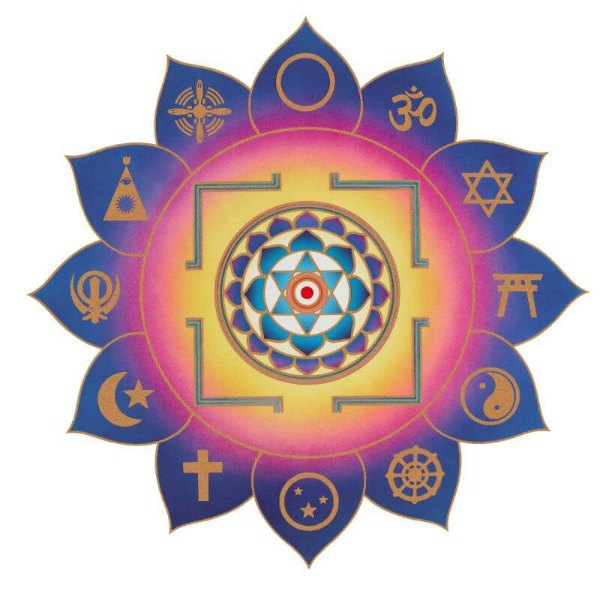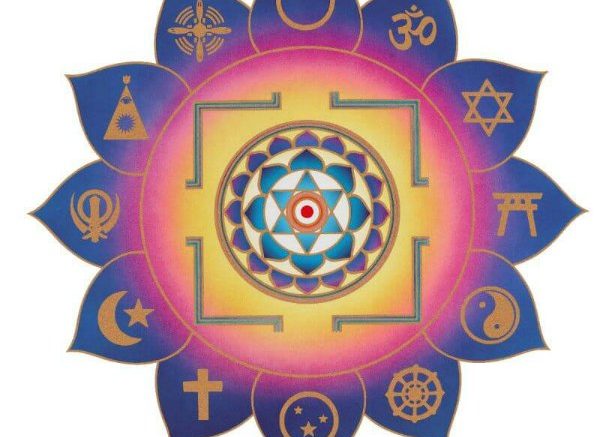 Article 5 in a Series (see full lnterfaith list here)
Article 5 in a Series (see full lnterfaith list here)
By Dan Wolf
Islam Is … defines Islam as follows. “The Arabic word Islam literally means ‘surrender’ or ‘submission.’ Islam, as a faith, means total and sincere surrender to God so that one can live in peace and tranquility. Peace (Salam in Arabic, Shalom in Hebrew) is achieved through active obedience to the revealed commandments of God … Islam is a complete way of life, implying a total submission to God. One who surrenders his or her will to God, voluntarily, is called a Muslim.”[1] This is an accurate statement about Islam, but it only lays out a faith component. So what other implications arise from the above definition?
Islam is an Ideology
If Islam is a complete way of life, it is more than simply a religion, and that is the case. One need only read a book that discusses Islamic beliefs as derived from the sirat, hadith, or sharia. One such resource is Reliance of the Traveller.[2] The subtitle of this work is entitled A Classic Manual of Islamic Sacred Law. It provides an understanding of Sharia, as derived from the Sunnah, and contained within the Qur’an and hadith.
For those who do know what the above terms mean, they are briefly described below.
Qur’an – God’s full and final revelations to man.
Hadith – Oral traditions of what Muhammad said, did, or approved of, that were later written down.
Sirat – Biographies of Muhammad’s life and actions.
Sunnah – Traditions based upon Muhammad’s conduct, basis for Sharia.
Sharia – The code for Islamic jurisprudence, but more. “By the Shari’ah of God is meant everything legislated by God for ordering man’s life.”[3]
Outside influences played a significant role in shaping Islam. Foreign ideas entered Islam in the form of hadith. This is not my assertion. Islam borrowed its religious ideas from other sources, including Christian heresies – heresies that were written after the New Testament text. It also borrowed heavily in other areas. Ignaz Goldziher was one of the foremost Islamists of the twentieth century, and his written works are considered to be classical studies of Islam today. He said the following about the hadith.
“Not only law and custom, but theology and political doctrine also took the form of hadith. Whatever Islam produced on its own or borrowed from the outside was dressed up as hadith. In such form alien, borrowed matter was assimilated until its origin was unrecognizable. Passages from the Old and New Testaments, rabbinic sayings, quotes from apocryphal gospels, and even doctrines of Greek philosophers and maxims of Persian and Indian wisdom gained entrance into Islam disguised as utterances of the Prophet.”[4]
One will find sections within Reliance of the Traveller on such diverse topics as the nature of legal rulings, purification of containers and the body, visiting the sick and the dying, the selling of fruit and crops, personal loans, sharecropping, the bride’s marriage payment, the wedding feast, jihad, the Caliphate, arrogance, pride, conceit, armed revolt, and informing on another. Aspects of all significant and insignificant aspects on one’s life are accounted for within Islam. There is no separation between church, state, military, law, civics, or politics.
The Difference Between Ideology and Religion
All is Islam. This ideology is not only contrary to the Judeo-Christian tenets on which our society is founded, but it is incompatible with it. Islam an ideology for the following reason. A religion is defined as a particular system of beliefs, attitudes, emotions, behaviors, etc. that constitute man’s relationship with some universal principle, power, or being. It concerns the relationship between man and that universal. An ideology, on the other hand, is a set of ideas or objectives that influence a whole society or culture, especially their political and social structures. Ideology is concerned strictly with man’s relationships with his fellow human beings. Christianity is concerned only with religion. Both religion and ideology are subsumed under Islam.
No Separation of Church and the State
Within Christianity, these notions are separate. Within the Old Testament Moses was the Jewish people’s leader, and Aaron was their chief priest. There was a division between church and state even then. They were separate spheres within society. They had distinct responsibilities. This view is also carried forward into the New Testament. From the Gospel of Matthew, “Then render to Caesar the things that are Caesar’s; and to God the things that are God’s.”[5]
From Romans 13 we have the following statement about government (the State). “Every person is to be in subjection to the governing authorities. For there is no authority except from God, and those which exist are established by God.”[6] While the Church and State were separate, they both derived their power from God, and were both to be turned toward Him.
This division does not exist within Islam. The sole purpose of government within Islamic society is to see that Islam’s requirements are carried out. Within societies based on Judeo-Christian principles the relationship between man and God (religion) is the province of the church. As a result of man’s relationship with God, he has some inherent unalienable rights that were granted to him by God. It is the state’s primary responsibility to protect those rights (ideology). This difference could not be more profound as it stems from the biblical principle that man is free, whereas in Islam man is born a slave (more here).
No Compulsion in Religion?
When the State and Church become one, history shows us over and over that both become corrupted. Islam Is … says the following about compulsion and religion.
“From this emphasis on free will, it follows that Islam can only be accepted by free choice. The purpose of human life is to worship God of one’s own free will. Therefore, matters of faith have value only if they are accepted on the basis of freedom of choice. If a person is coerced into accepting any religion, that acceptance is false and has no value. God, The Gentle, says, ‘There is no compulsion in religion. Truth stands out clear from error: whoever rejects evil and believes in God has grasped the most trustworthy handhold that never breaks. And God hears and knows all things.’ [Qur’an 2:256]
What the author leaves out is that this verse has been abrogated by sura 9.5 (more here). In fact Islamic religious leaders assert that the treatment of non-Muslims within Islamic countries (Dhimmis) is aimed at persuading them to convert to Islam (more here and here). We can sum up the difference in regards to religious freedom between our society and Islam as follows, within our society one has the freedom to choose from all things while within Islam one has the freedom to choose only one thing.
Within Islam one is given the choice of death, living in submission to Islam (Dhimmitude), or converting to Islam. Such a choice is no choice at all. Instead it is making a choice under duress. Duress is defined as “constraint by force or fear; compulsion.” We will cover the notion of free will in a separate article.
Equality Under Sharia Law?
This topic has already been discussed in Of Allah and Man. The short answer is no, there cannot be. There are differences in rights between believers and non-believers (in Islam), women and men, and even between believers themselves.
Islam represents a way of life whose freedom we as Christians would not recognize nor acknowledge as such, stemming from the difference in the God’s nature, man’s nature, and the relationship between them. There could not be a more diametrically opposed notion of religion if one tried to create it. These differences lead to a difference in the meaning of submission and peace that will also be addressed in another article.
Dan Wolf is a researcher, analyst, and author. He has written three books examining the relationship between faith, freedom, virtue, and charity. Together these form the cornerstone of our purpose, and our society’s foundational principles derived from those relationships. Links to his work can be found at the Living Rightly website.
[1] Seda, Pete, Islam Is …, p. 2, 2002.
[2] al-Misri, Ahmad ibn Naqib, Reliance of the Traveller, amana publications, 1994.
[3] Qutb, Sayyid, Milestones, SIME ePublishing, 2005.
[4] Goldziher, Ignaz, Introduction to Islamic Theology and Law, p. 40, Princeton Press, 1981.
[5] Matthew 22:21, New American Standard Bible.
[6] Ibid, Romans 13:1.





